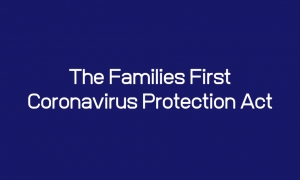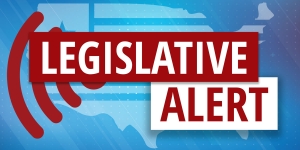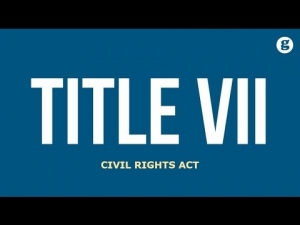NAVIGATING THE NEW COBRA SUBSIDY
Reprinted with permission from the April 16th edition of The Legal Intelligencer. (c) 2021 ALM Media Properties. Further duplication without permission is prohibited.
The American Rescue Plan Act of 2021 (ARPA), among other significant items, imposed new obligations for employers pursuant to the Consolidated Omnibus Reconciliation Act (“COBRA”). Specifically, ARPA requires employers to provide COBRA premium subsidies to certain employees from April 1, 2020 through September 30, 2021. The requirement comes with complicating definitions, retroactivity provisions, and new forms, creating a temporary compliance issue for employers. On April 7, 2021, the United States Department of Labor issued Model Notices and “FAQ’s” to assist with these compliance issues.
The COBRA subsidy is available from April 1, 2021 to September 30, 2021 to “assistance eligible individuals,” that is, individuals who are eligible for COBRA coverage as a result of an involuntary termination or a reduction in hours. The Act specifically excludes individuals who voluntarily terminate their employment. “Assistance eligible individuals” are not required to pay their COBRA premiums from April 1, 2021 through September 30, 2021. The employer or plan to whom the individual would normally pay premiums is entitled to a Medicare tax credit for the amount of the premium assistance. There is no guidance from the Department of Labor or the Internal Revenue Service regarding these tax credits.
The Third Circuit Addresses Employment Discrimination Cases
Reprinted with permission from the February 22nd edition of The Legal Intelligencer. (c) 2021 ALM Media Properties. Further duplication without permission is prohibited.
In Martinez v. UPMC Susquehanna, the United States Court of Appeals for the Third Circuit clarified the specificity required in pleading prima facie cases of discrimination in light of the holdings in Ashcroft v. Iqbal, 556 U.S. 662 (2009) and Bell Atlantic Corp. v. Twombly, 550 U.S. 544 (2007). The Third Circuit held that an age discrimination plaintiff need not plead the exact age or duties of the plaintiff’s alleged replacement in order to survive a motion to dismiss.
The plaintiff in the Martinez case appealed an order issued by the United States District Court for the Middle District of Pennsylvania dismissing the case for failure to state a claim under Iqbal and Twombly. The defendant, UPMC Susquehanna, employed the plaintiff, Dr. Martinez, as an orthopedic surgeon. Dr Martinez alleged in his complaint that UPMC Susquehanna terminated his employment and advised him that it was “moving in a different direction and his services were no longer needed.” UPMC Susquehanna also told Dr. Martinez that his termination had “nothing to do with his performance.” Dr. Martinez pleaded that he was seventy (70) years old, and that UPMC Susquehanna hired two doctors after his termination. The Complaint alleged that one of the hired physicians took over some of Dr. Martinez’s job duties, and that the second doctor was hired in response to a job posting for an orthopedic surgeon. Relevant to the Court’s analysis, Dr. Martinez alleged that both doctors were “significantly younger”, “less qualified,” and “less experienced” than Dr. Martinez.
Supreme Court Expands Title VII Protections to Prohibit Discrimination on the Basis of Sexual Orientation and Gender Identification
Reprinted with permission from the June 19th edition of The Legal Intelligencer. (c) 2020 ALM Media Properties. Further duplication without permission is prohibited.
The Supreme Court of the United States held in Bostock v. Clayton County, Georgia, 590 U.S. ___ (US 2020) that Title VII’s prohibition against discrimination on the basis of sex also bars discrimination on the basis of sexual orientation and gender identity. The Court’s opinion relies on the text of the statute, rejecting arguments from employers regarding the failure to specifically include gender identity or sexual orientation in the statue. The Supreme Court’s decision in Bostock is historic – it expands the protections of Title VII to sexual orientation and gender identity, protections previously denied. The Court’s ruling requires employers to update and modernize their policies and procedures, hiring practices, training and workplace culture.
COVID-19 EMPLOYMENT LAW ISSUES
As state governments issue stay-at-home orders, employment lawyers across the country have been digesting new employment laws, assisting clients in managing layoffs, furloughs, and leaves of absence, and working to keep up with a changing employment landscape. Federal legislation has imposed dramatic, although temporary, changes to the way employers manage their employees during this trying time. The Families First Coronavirus Response Act (“Families First Act”) and its regulations impose, for the first time under federal law, paid leave obligations. The CARES Act changes the economics of layoffs, furloughs and reduced hours for employers.
On March 18, 2020, President Trump signed the Families First Act into law. The Act includes provisions to assist employers and employees during these extraordinary times. The Families First Act creates two forms of paid leave related to the Covid-19 crisis: two-week paid leave (“Emergency Leave”); and expansion of the Family and Medical Leave Act (“FMLA”) to provide twelve weeks of paid leave (“Expanded FMLA Leave”).
DOL Regulations Provide Guidance as to Families First Act Small Employer Exemption
On April 1, 2020, the Department of Labor issued temporary regulations regarding the terms of the Families First Coronavirus Response Act (“Families First Act”). The regulation provides extensive guidance regarding the regulation to help employers comply with its terms.
United States Department of Labor Provides Limited Guidance on Families First Coronavirus Response Act
On March 24, 2020, the United States Department of Labor ("DOL") issued limited guidance regarding the Families First Coronvirus Response Act (the “Act”).
Most importantly, the DOL identified April 1, 2020 as the Effective Date of the Act, contrary to the conclusion of most observers that the Act would go into effect on April 2, 2020. Accordingly, employers of all sizes should plan to come into compliance on April 1, 2020. The DOL also clarified that the Act is not retroactive. The DOL also advises not to send requests for the small business exemption to the department, and that it will issue regulations regarding the small business exemption at a later date.
Legislative Update: The Families First Coronavirus Protection Act
On March 18, 2020, President Trump signed the Families First Coronavirus Protection Act (the “Act”) into law. The Act includes provisions to assist employers and employees during these extraordinary times.
Expansion of Protections Under the Family and Medical Leave Act
For the period of time beginning April 2, 2020 to December 31, 2020, the Act expands the protections of the Family and Medical Leave Act (“FMLA”). Employees may be eligible for a combination of paid and unpaid leave for a period of up to 12 weeks under the FMLA, under certain conditions.
A Legislative Update for Employers Regarding COVID-19
Late Friday, the United States House of Representatives passed the Families First Coronavirus Response Act (the “Act”). The President has tweeted his support of the legislation, and the Senate will take it up this week.
Attention Employers: New Department of Labor Ruling on Overtime Pay
On September 24, 2019, the United States Department of Labor announced a new final rule regarding eligibility for overtime pay. The rule requires employers to revisit their classifications of employees as exempt in order to ensure compliance.
As I discussed in previous articles (Texas Federal Judge Blocks New Overtime Rules and Speaking of Overtime Rules and One Final Overtime Update) the DOL announced rules in 2016 to dramatically increase the salary threshold in order for certain categories of employees to meet the standards for exemption from federal overtime requirements. The rules were met with litigation and a stay of their enforcement.
The new final rule raises the salary threshold from $455 a week to $684 a week, or $35,568 a year. Employers may now use nondiscretionary bonuses and incentive payments, such as commissions to satisfy up to 10% of the salary level. Employees will still have to meet requirements related to their duties in order to meet the standards of exemption for the overtime requirements.
This final rule will become effective on January 1, 2020. As we advised in 2016, employers should take steps to ensure compliance by the end of the year. The first step is to identify any employees who are classified as exempt but are making less than $422 a week, and develop a plan to reclassify those employees, or revise their compensation. This is a good time to revisit the job duties of those employees to ensure that they meet the applicable standards for exemption in terms of their duties as well as their salary. This is also a good time to review overtime policies to ensure appropriate recordkeeping, efficient use of overtime and compliance with applicable law.
AMM can help employers navigate these new rules and review their employee classifications to ensure compliance and minimize risk.
Supreme Court Finds Title VII’S Requirement to File a Charge of Discrimination is not Jurisdictional
Reprinted with permission from the June 21st edition of The Legal Intelligencer. (c) 2019 ALM Media Properties. Further duplication without permission is prohibited.
In Fort Bend County v. Davis, 587 U.S. ___ (2019), the Court held that the requirement that a plaintiff in an employment discrimination case brought under Title VII, 42 U.S.C. § 2000e, et seq, file a charge of discrimination with the Equal Employment Opportunity Commission (“EEOC”) prior to filing a complaint in court is a procedural and not a jurisdiction requirement. Therefore, an employer’s failure to assert the absence of an appropriate charge of discrimination in a motion to dismiss results in a waiver of the defense. The Supreme Court’s decision resolves a split in the circuits regarding whether the requirement is jurisdictional, and highlighted the importance of the charge of discrimination and the motion to dismiss in employment discrimination cases.





























